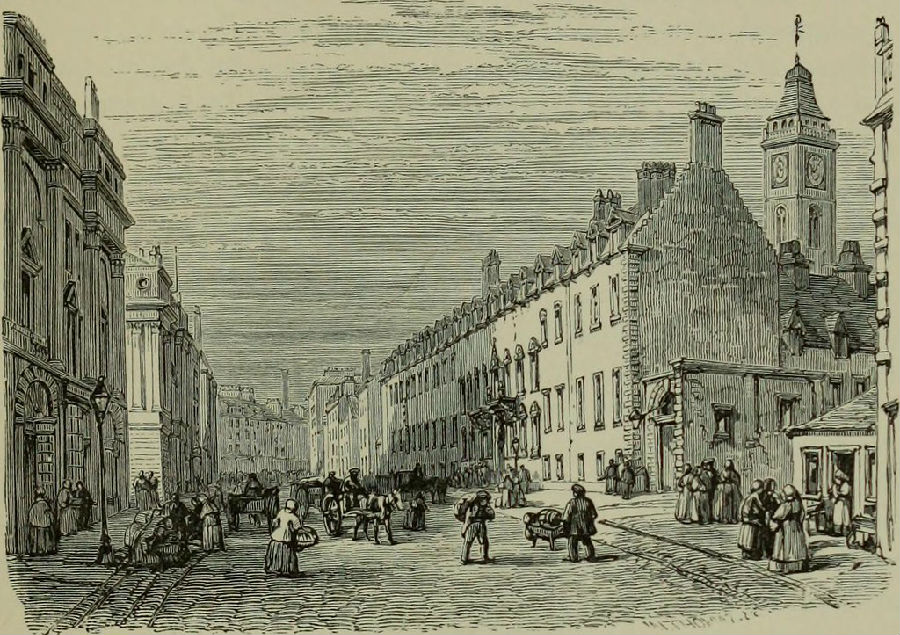Coming up to Maryhill.
来到了Maryhill。
This is the north of Glasgow now and this was where my mum and dad
这是格拉斯哥的北部,这是我父母亲
spent the early years of their married life in a place called Hopehill Road.
度过他们结婚后早几年生活的地方,住在Hopehill路上。
They lived in a single end,
他们住的是个一室户,
which, which means just the one room for to eat, sleep and cook and...
就是说只有一个房间,吃,睡,烧什么的都在一间。

There was my mum and dad, my brother and my sister,
有我的爸爸妈妈,兄弟姐妹,
myself and a gran that I don't remember,
我,还有我已经记不得了的奶奶,
all living in the one room, all sharing beds except me. I was in the pram.
都住在一个房间里,除我以外,共用一张床。我睡在婴儿车里。
Sort of glad I don't remember it,
那种高兴,我已经记不得了,
but this is it - this is Hopehill Road - and didnae look like this as far as I know.
这就是,就是Hopehill路,不是我熟知的样子。
In the early years of the 20th century,
在20世纪早期,
Glasgow underwent a period of rapid industrialisation.
格拉斯哥经历了一个快速工业化时期。
Tenements were thrown up to house the expanding population.
大量建房以满足不断增加的人口居住。
In the area where Moira and Graham lived as children,
在Moira和Graham小时候居住的地方,
there were a million people living in just a few square miles.
只有几平方英里就居住了100万人。
In Glasgow in the middle of the last century,
上世纪中期的格拉斯哥,
we had wave after wave of childhood infections -
发生一波又一波儿童传染病,
scarlet fever, typhoid - which were rife throughout the city,
猩红热,伤寒,充斥了整座城市,
and overcrowding was very common and in those conditions, of course,
拥挤现象很普遍,当然在这种条件下,
infections passed from person to person very quickly.
人与人之间的传染非常快。
In order to survive their conditions,
为了在这种条件下生存,
the people living in the tenements at the time
生活在那时房子里的人
developed heightened immune defences to combat infection,
产生出了高免疫的抗体来对抗传染,
a condition known as inflammatory response.
这种情形称为炎症反应。
So if you have a tendency towards a high inflammatory response,
因此一旦有了高炎症反应,
then when childhood infections come,
那么当儿童传染病出现的时候,
you tend to survive long enough to have children yourself,
就可以比自己的孩子幸免更长的时间,
so people with that tendency will be increased in the population.
因此人们有着增加人口的倾向。











